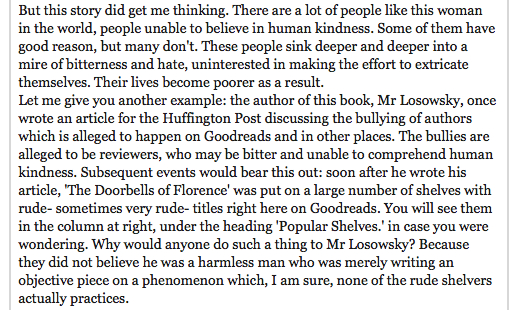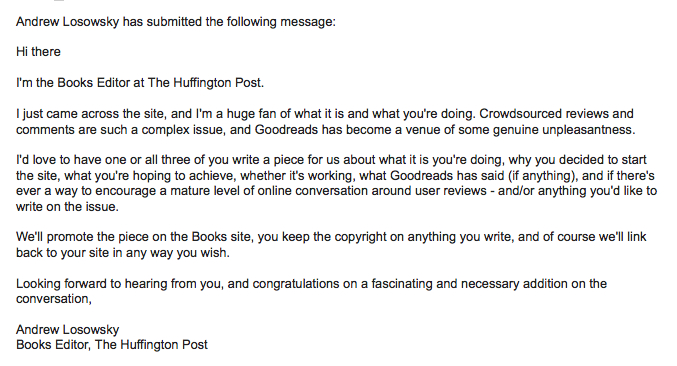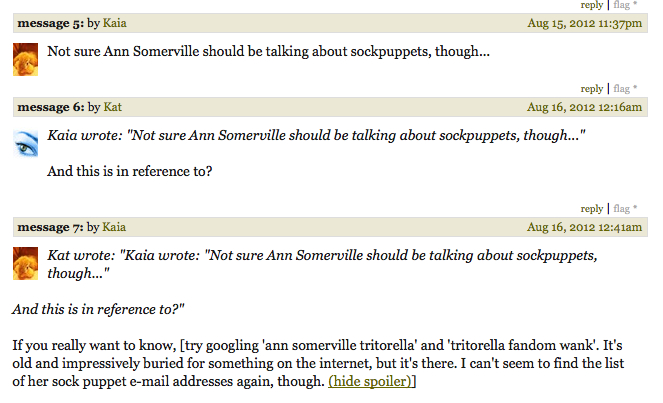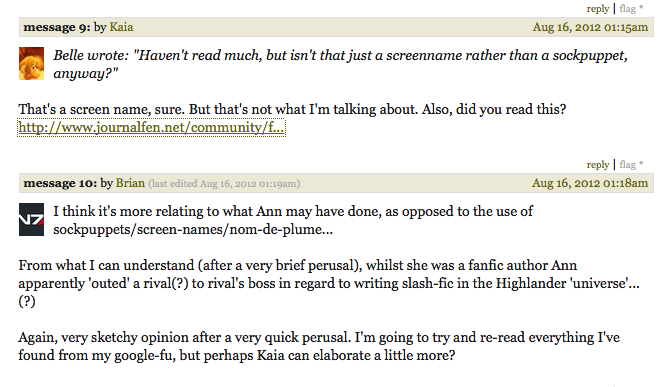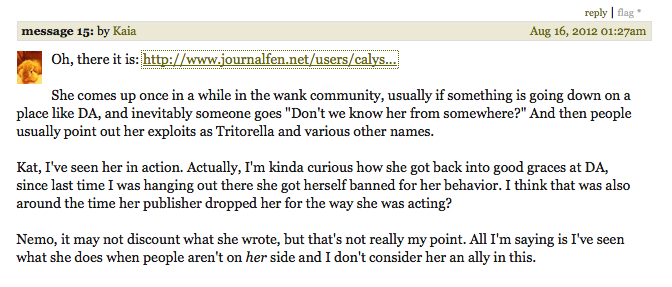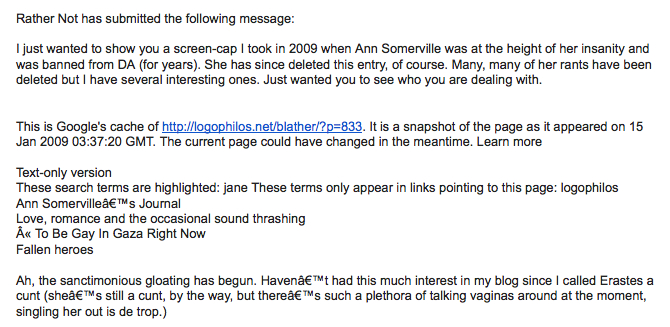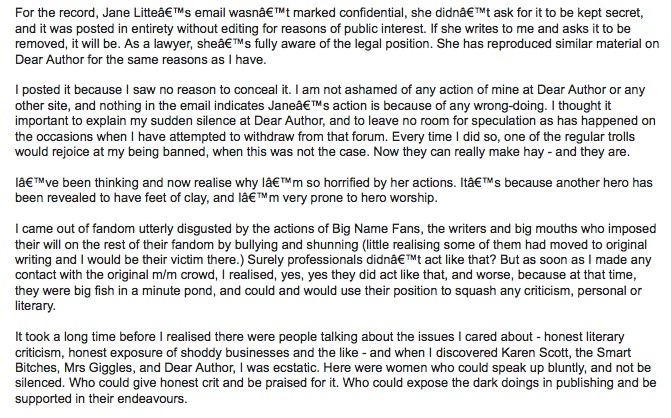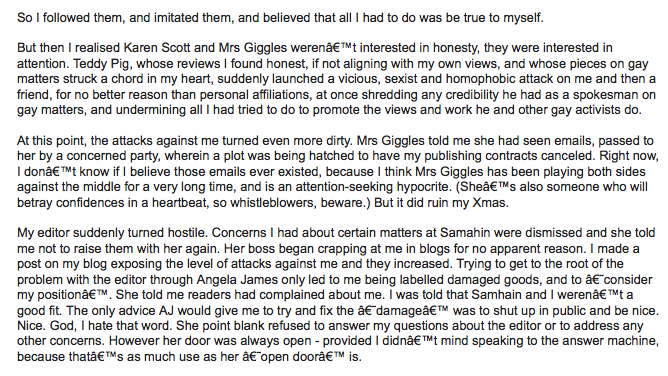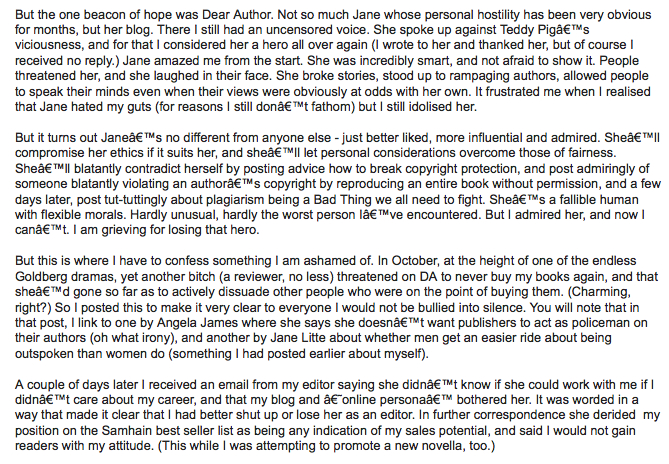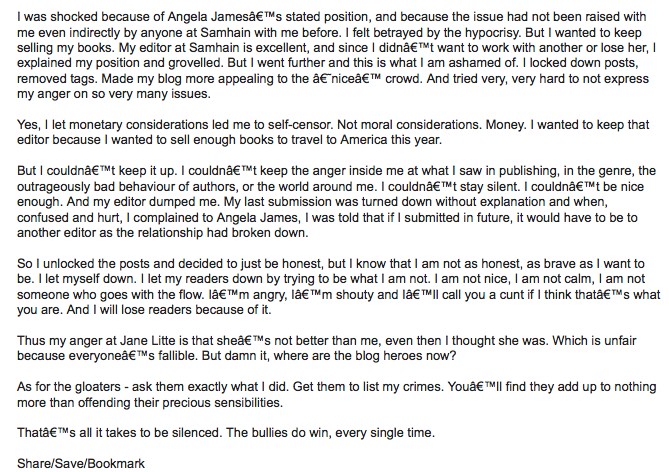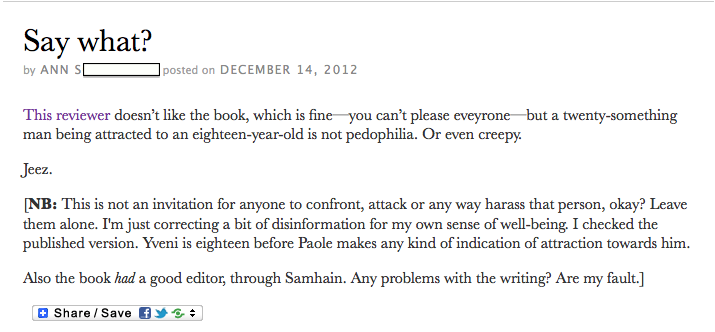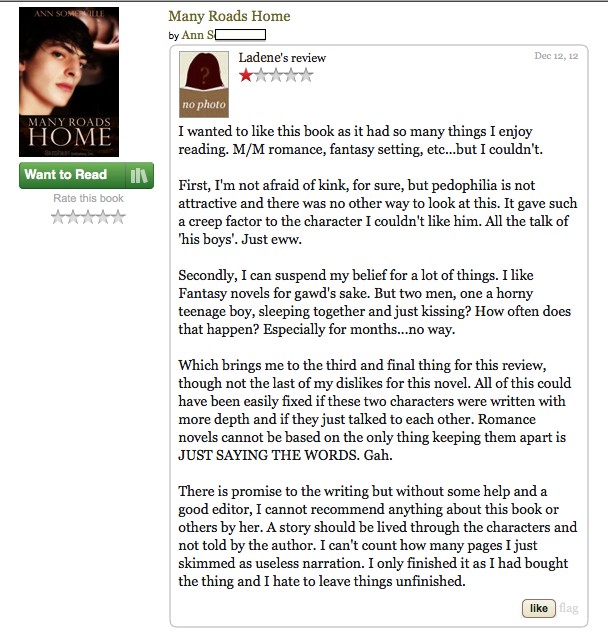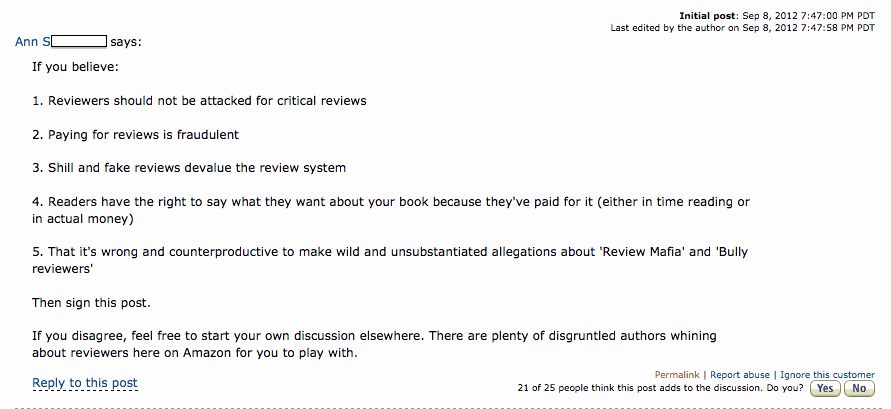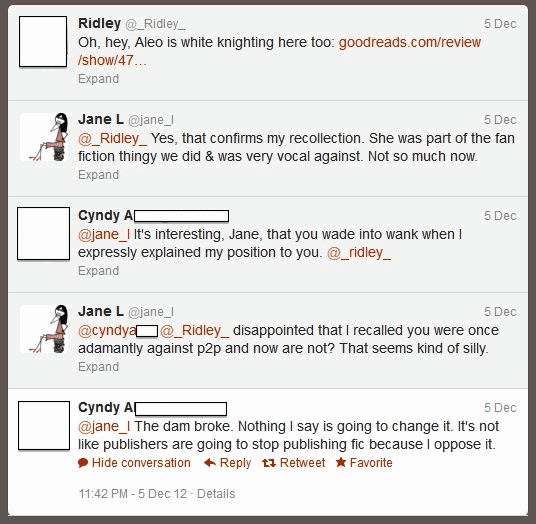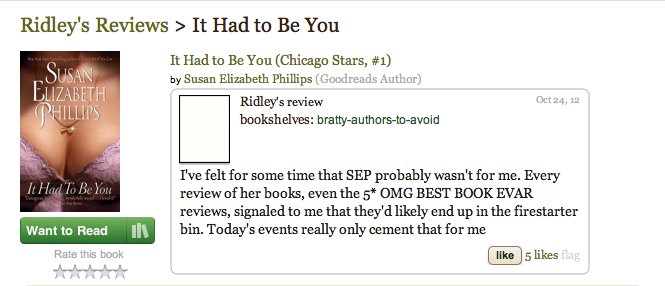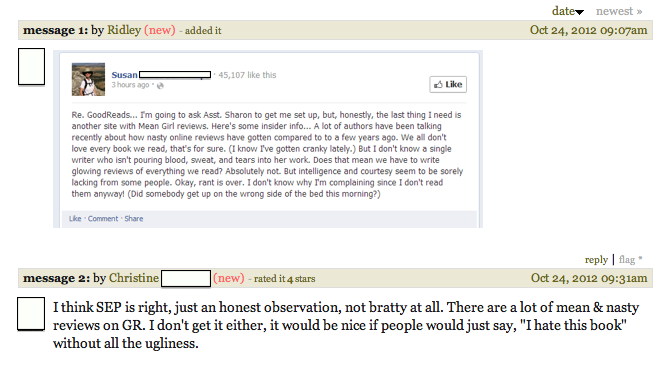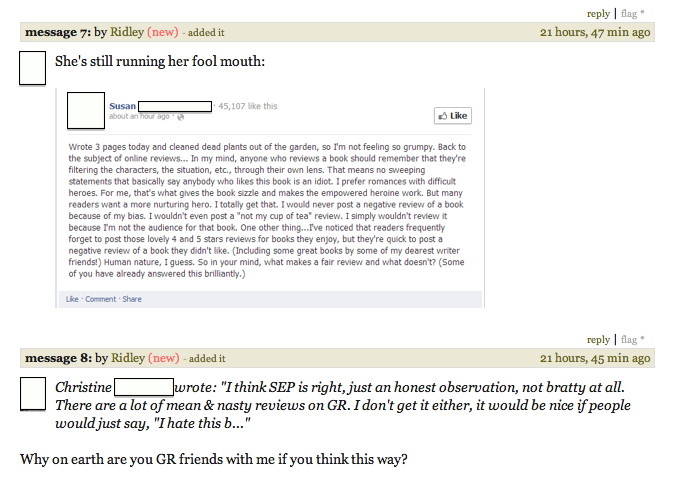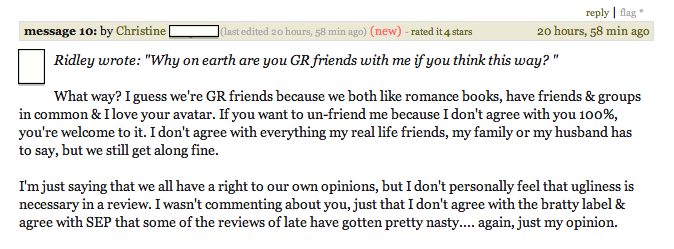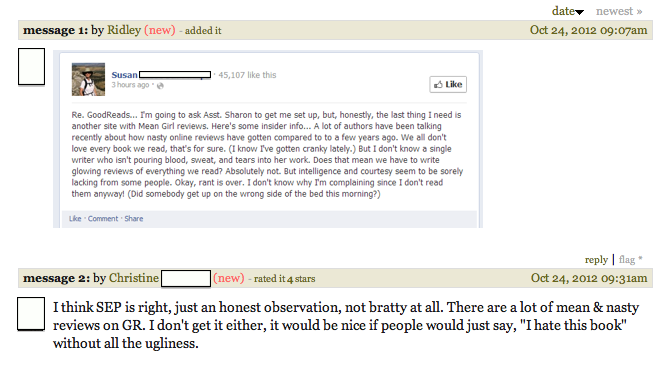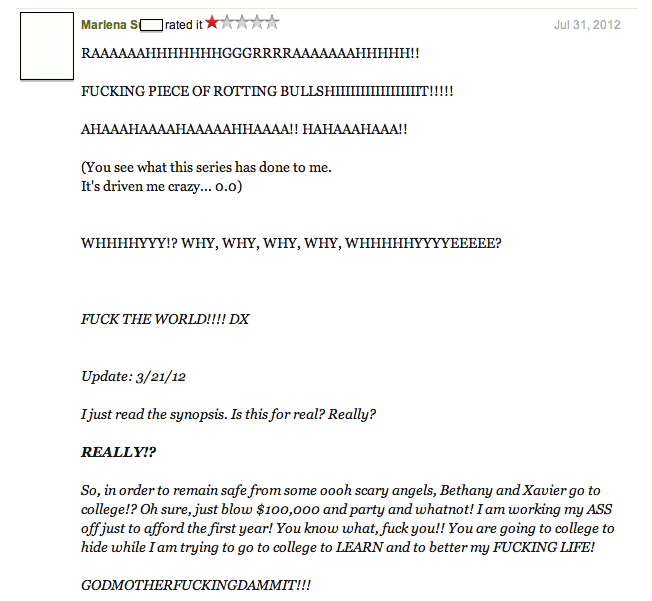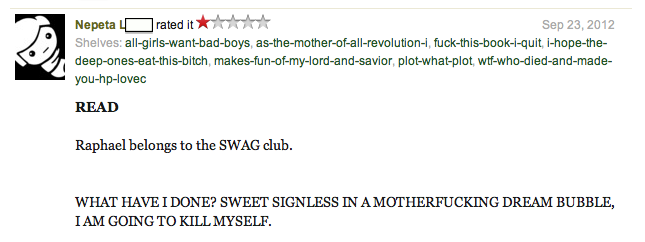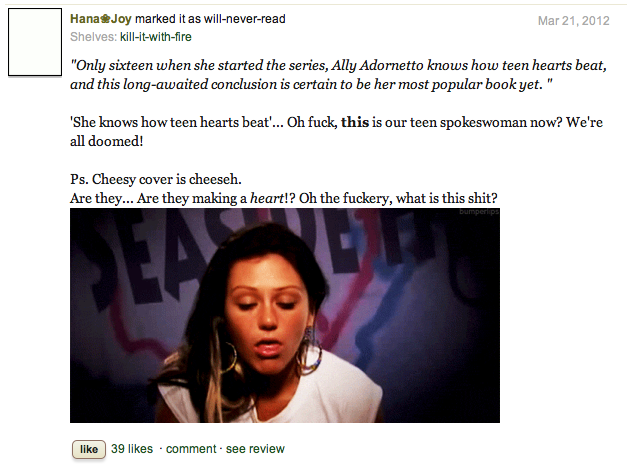Below is a post we published September 18, 2012, on internet trolling as a mental illness. We’re re-pubbing it now as several people have asked us why exactly we call her Looney, but also because of this comment left by anon-a-bus:
Just curious about something. Looney has a post up about how to hide your IP. Maybe I’m missing something here, but most normal people don’t even think of those things. If I’m not doing anything wrong then why would I need to hide my IP?
I’m sure some people have valid reasons for hiding their IP. However, when people like Looney do it, and they give out directions to show others how to do it, doesn’t that bring up all kinds of shifty thoughts? Sockpuppetry anyone?
**************************************************************************************
We’ve been wanting to write up this post on internet trolling for a while now, but events have outpaced us and so we are just now getting to it. But before we move on, we want to clarify a few things for our readers who have been sending us inquiries.
First, we’ve had several people ask us about Annabeth’s comment in A Dedication to Our Readers:
Now, my review is this one:
http://www.goodreads.com/review/list/12519948-a-nnabeth-hole?sort=review&view=reviews
I do mention the book itself, but I also explain why that nice Mr Losowsky is on all those nasty shelves. I think people can’t help but wonder why such a harmless book is on so many offensive shelves, which they would immediately notice when their eye wanders to the edge of the book page.
They want to know who Mr. Losowsky is and why he was a victim of a bully attack. First of all, Mr. Losowsky is Andrew Losowsky, the Books Editor of the Huffington Post. In Annabeth’s review of his book, The Doorbells of Florence, she says:
As a point of order, we will say that Mr. Losowsky didn’t write the article. We did. He contacted us on July 11, to solicit an opinion piece from us about our site. We wrote it and it was published in the books section of the Huffington Post on July 20. It also received a mention in USA Today beside Stephen Covey’s final written work.
Here is a screenshot of Andrew’s original message to us:
Notice that he calls Goodreads “a venue of some genuine unpleasantness”? You see, we are not the only ones who think that GR fosters a toxic environment on their site. So does the Books Editor of the Huffington Post. That should tell you something.
Secondly, some of our readers have asked us for some clarification on Looney Tunes. They want to know how we were able to verify that she is Minerva. Also they want to know why A Poet and Don’t Know It would write Ode to a Loon, calling her a troll who has been “duly banned.”
As for her being Minerva, I explained that in my response to Ally’s question in the comments:
Well, from the beginning we knew it was her because she kept pimping Minerva’s site. She did it on HuffPo and a bunch of other places. We also knew it was her by her voice. Same bitterness, same spite. But we confirmed it by a site visitor who comments on our blog, on Ann’s and on Minerva’s. We know the names this person goes by. You see, she has the same IP, but different names. What’s funny is that Ann just figured this out and the only way she could have done that is if she can see the IPs of the people who visit Minerva’s site. Hence, she is Minerva.
We’re not at all surprised to see her parading around under another name as she has been doing this for years – trolling the internet under various screen names and sockpuppets. We first learned of her history with sock puppetry when someone sent us . Here are a few screenshots from the conversation that should shed some light on her past:
As for the two links that Kaia gives:
Here is the link talking about her trolling as Tritorella. At the end, the author says, “As for Tritorella being “batshit insane” in every fandom she’s been in? You’d have to take a poll on that. Majority rules.”
And here is the link of the cyberstalker alert providing all her various email addresses.
So, according to Kaia, she has been known for sock puppetry, cyber-stalking, being banned from Dear Author, and also being dropped by her publishers for her behavior. At first, we were hesitant to believe this considering the source of the information, but since then, we have received so many messages confirming it that we don’t even question it any longer.
For example, here is a screenshot of a message we received from Rather Not who took a “screengrab” from one of Looney’s deleted posts. It’s not exactly a screengrab per se, but a copy/paste from her blog to a text file. We could tell it was genuine by the missing apostrophe’s, which are replaced with “’”. This happens due to the difference in character sets in browsers and other applications.
It’s really unbelievable all the private messages we’ve received about her. The reason so many people hate her is due to her relentless harassment of others, her lack of empathy for them, her lack of respect for their feelings, and the pain and humiliation she has caused them. She has done this to SO many people.
As for us, I will reiterate what Athena said. We don’t hate her. We just think she’s ridiculous and pathetic. Especially in light of , her “Code of honour for authors” to which Dougie Brimson says:
When Dougie says it’s laughable, that’s because it is. And if you think she’s suddenly changed and seen the light, think again. All you have to do is take a look at her blog. That should relieve you of any delusions of her turning over a new leaf. She says wants us all here to “die in a fire.”
And her latest victim? Spinner (Sharon L Reddy) who she is currently harassing on her “” thread. Oh, the irony!
So, why are we giving you all of this information? Well, first to answer the questions our readers have put to us, but also because we wanted to talk about the topic of internet trolling. When we talk about internet trolling, how far is too far? When does it become less of a past time for some and more of a mental illness? And why does it happen?
In we were referred to by a site visitor, Claire Connelly attempts to answer these questions. She indicates that some of the extreme actions of internet trolls are a “a sign of mental ill-health.” She talks about one troll named Ben:
“He said the worst thing he ever did was vandalise the Facebook memorial page of a young girl who had committed suicide. “I wrote, ‘How’s it hanging guys’.”
He doesn’t feel any remorse, and strangely doesn’t consider his actions bullying despite claiming he probably wouldn’t have started trolling if he had not been bullied at school.
“I’d feel responsible but I wouldn’t care. I’ve pretty much lost all hope for humanity anyway, I don’t believe that anything can save people,” he said.
Ben and the hundreds of thousands like him reflect the dark side of the internet. They believe themselves to be cultural critics, indulging in harmless fun, but RIP trolling is one of the most destructive and harmful forms of trolling. It mocks and exploits the pain of those grieving the loss of loved ones. It ranges from the sort of distasteful comment Ben posted to plastering pages with photo-shopped pictures of babies in meat grinders or hardcore pornography.
Last year Bradley Paul Hampson became the first Australian to be jailed for it. He plastered the Facebook tribute pages of two slain schoolchildren with child pornography, an act the judge described as depraved.
In the UK, one of the most infamous RIP trolls, Sean Duffy, was sentenced several months later for persecuting on Facebook four families of dead children. On one girl’s memorial page he wrote: “Help me mummy, It’s hot in Hell.”
But trollers like Ben and Hampson may not be just hurting their victims.
Psychologist Karyn Krawford claims that extreme trolling may be a sign of mental ill-health.
Ms Krawford said she had done studies which showed the empathy of mental health sufferers decreased for every hour they spent online.”
She also says that “psychologists attribute the bad behaviour online to “deindividuation” – the feeling people get when they think they are anonymous.” This is something that we’ve noticed, too, in witnessing and documenting bully attacks on GR and other related places.
So, when Andrew Losowsky speaks of GR as being “a venue of some genuine unpleasantness,” he’s not kidding. We might even go farther than that. We might even say that it is not just a venue of some genuine unpleasantness, but also a venue of some genuine mental illness.

